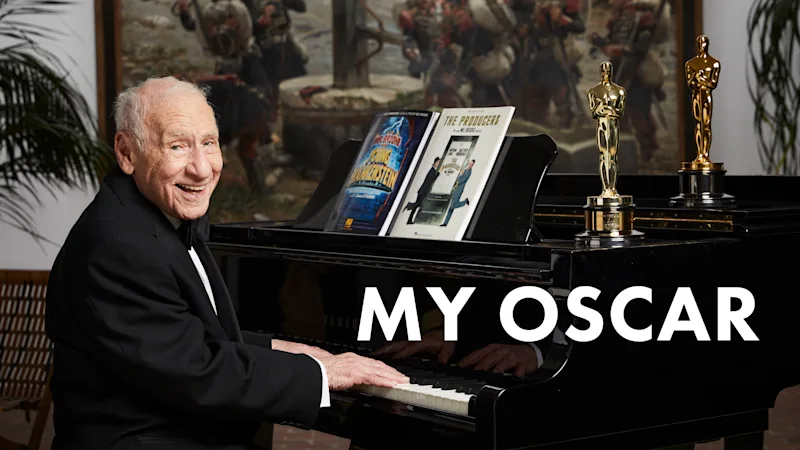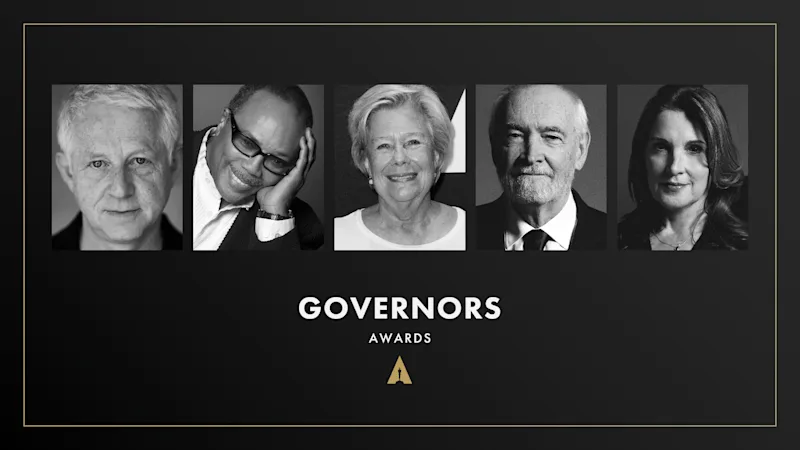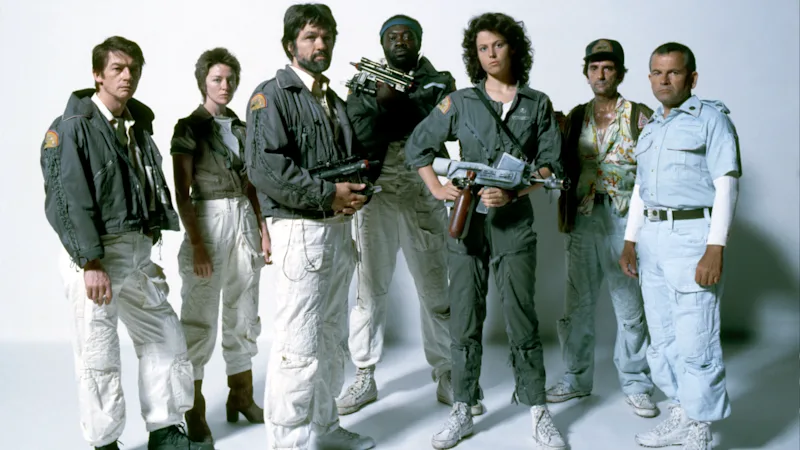"I've been in this business long enough to have seen the evolution of cinema arts up close and personal," Sci-Tech Awards host Natasha Lyonne joked in a monologue filled with zingers about voxels and image fidelity. "The Horse in Motion from 1879? Well, I knew that horse, and I was cut out of that film!"
The Academy's annual Scientific and Technical Awards honors the inventors and engineers who make the magic of movies possible. This year's presentation was held on Feb. 23, 2024 at the Academy Museum of Motion Pictures, during which 16 awards were presented to a total of 45 individuals whose contributions have forever impacted both the art and the science of cinema.
"Movies offer an escape from reality. They transport us to varied and distant times and places, and often, they serve as a window into worlds we couldn't possibly imagine on our own," Academy President Janet Yang said in opening the show. "It's your specialized skill, focus and collective dedication that make this sublime experience possible. Furthermore, you do it in a way that seems so seamless, so effortless, when we know that can be very far from the truth."
Below is the full list of honorees.
Technical Achievement Awards (Academy Certificates)
To Bill Beck for his pioneering utilization of semiconductor lasers for theatrical laser projection systems.
Bill Beck's advocacy and education to the cinema industry while at Laser Light Engines contributed to the transition to laser projection in theatrical exhibition.
To Gregory T. Niven for his pioneering work in using laser diodes for theatrical laser projection systems.
At Novalux and Necsel, Gregory T. Niven demonstrated and refined specifications for laser light sources for theatrical exhibition, leading the industry's transition to laser cinema projection technology.
To Yoshitaka Nakatsu, Yoji Nagao, Tsuyoshi Hirao, Tomonori Morizumi and Kazuma Kozuru
Yoshitaka Nakatsu, Yoji Nagao, Tsuyoshi Hirao, Tomonori Morizumi and Kazuma Kozuru collaborated closely with cinema professionals and manufacturers while at Nichia Corporation Laser Diode Division, leading to the development and industry-wide adoption of blue and green laser modules producing wavelengths and power levels matching the specific needs of the cinema market.

To Arnold Peterson and Elia P. Popov for their ongoing design and engineering, and to John Frazier for the initial concept of the Blind Driver Roof Pod.
The roof pod improves the safety, speed and range of stunt driving, extending the options for camera placement while acquiring picture car footage with talent in the vehicle, leading to rapid adoption across the industry.

To Jon G. Belyeu for the design and engineering of Movie Works Cable Cutter devices.
The unique and resilient design of this suite of pyrotechnic cable cutters has made them the preferred method for safe, precise and reliable release of suspension cables for over three decades in motion picture production.

To James Eggleton and Delwyn Holroyd for the design, implementation and integration of the High-Density Encoding (HDE) lossless compression algorithm within the Codex recording toolset.
The HDE codec allows productions to leverage familiar and proven camera raw workflows more efficiently by reducing the storage and bandwidth needed for the increased amounts of data from high-photosite-count cameras.
To Jeff Lait, Dan Bailey and Nick Avramoussis for the continued evolution and expansion of the feature set of OpenVDB.
Core engineering developments contributed by OpenVDB's open-source community have led to its ongoing success as an enabling platform for representing and manipulating volumetric data for natural phenomena. These additions have helped solidify OpenVDB as an industry standard that drives continued innovation in visual effects.
To Oliver Castle and Marcus Schoo for the design and engineering of Atlas, and to Keith Lackey for the prototype creation and early development of Atlas.
Atlas's scene description and evaluation framework enables the integration of multiple digital content creation tools into a coherent production pipeline. Its plug-in architecture and efficient evaluation engine provide a consistent representation from virtual production through to lighting.
To Lucas Miller, Christopher Jon Horvath, Steve LaVietes and Joe Ardent for the creation of the Alembic Caching and Interchange system.
Alembic's algorithms for storing and retrieving baked, time-sampled data enable high-efficiency caching across the digital production pipeline and sharing of scenes between facilities. As an open-source interchange library, Alembic has seen widespread adoption by major software vendors and production studios.
Scientific and Engineering Awards (Academy Plaques)

To Charles Q. Robinson, Nicolas Tsingos, Christophe Chabanne, Mark Vinton and the team of software, hardware and implementation engineers of the Cinema Audio Group at Dolby Laboratories for the creation of the Dolby Atmos Cinema Sound System.
Dolby Atmos has become an industry standard for object-based cinema audio content creation and presents a premier immersive audio experience for theatrical audiences.
To Steve Read and Barry Silverstein
Utilizing a novel optical mirror system, the IMAX Prismless Laser Projector removes prisms from the laser light path to create the high brightness and contrast required for IMAX theatrical presentation.
To Peter Janssens, Goran Stojmenovik and Wouter D'Oosterlinck for the design and development of the Barco RGB Laser Projector.
The Barco RGB Laser Projector's novel and modular design with an internally integrated laser light source produces flicker-free uniform image fields with improved contrast and brightness, enabling a widely adopted upgrade path from xenon to laser presentation without the need for alteration to screen or projection booth layout of existing theaters.
To Michael Perkins, Gerwin Damberg, Trevor Davies and Martin J. Richards for the design and development of the Christie E3LH Dolby Vision Cinema Projection System, implemented in collaboration between Dolby Cinema and Christie Digital engineering teams.
The Christie E3LH Dolby Vision Cinema Projection System utilizes a novel dual modulation technique that employs cascaded DLP chips along with an improved laser optical path, enabling high dynamic range theatrical presentation.

To Ken Museth, Peter Cucka and Mihai Aldén for the creation of OpenVDB and its ongoing impact within the motion picture industry.
For over a decade, OpenVDB's core voxel data structures, programming interface, file format and rich tools for data manipulation continue to be the standard for efficiently representing complex volumetric effects, such as water, fire and smoke.
To Jaden Oh for the concept and development of the Marvelous Designer clothing creation system.
Marvelous Designer introduced a pattern-based approach to digital costume construction, unifying design and visualization and providing a virtual analogy to physical tailoring. Under Jaden Oh’s guidance, the team of engineers, UX designers and 3D designers at CLO Virtual Fashion has helped to raise the quality of appearance and motion in digital wardrobe creations.
To F. Sebastian Grassia, Alex Mohr, Sunya Boonyatera, Brett Levin and Jeremy Cowles for the design and engineering of Pixar’s Universal Scene Description (USD).
USD is the first open-source scene description framework capable of accommodating the full scope of the production workflow across a variety of studio pipelines. Its robust engineering and mature design are exemplified by its versatile layering system and the highly performant crate file format. USD's wide adoption has made it a de facto interchange format of 3D scenes, enabling alignment and collaboration across the motion picture industry.
The 96th Oscars will be held on Sunday, March 10, 2024, at the Dolby® Theatre at Ovation Hollywood and televised live on ABC at the new time of 7 p.m. EDT / 4 p.m. PDT and in more than 200 territories worldwide.
RELATED CONTENT:
Everything to Know About the 96th Oscars







